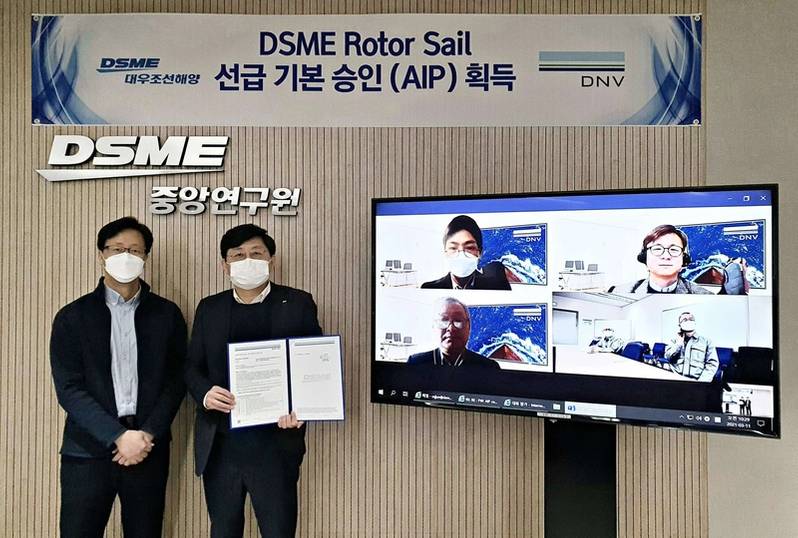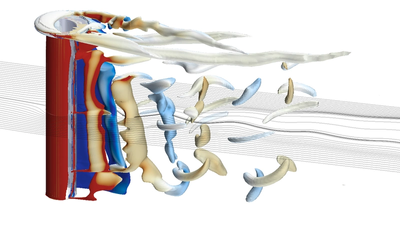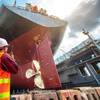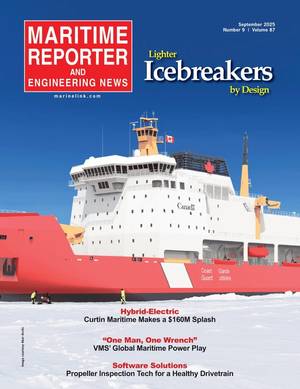DNV Awards AIP for DSME's Rotor Sail System
South Korean shipbuilder Daewoo Shipbuilding & Marine Engineering (DSME) received an approval in principle (AiP) from classification society DNV for the DSME Rotor Sail System for large oil tankers and liquefied natural gas (LNG) carriers.
Desigend to provide eco-friendly auxiliary propulsion for ships, a rotor sail system incorporates the installation of cylindrical columns (rotors) on the vessel’s deck to generate additional power to propel the ship by using the force of the wind and column rotation during operation.
“In this time of growing pressure to decarbonize, wind-assisted propulsion systems are an increasingly attractive and reliable solutions to ship owners and operators,” said Hasso Hoffmeister, Senior Principal Engineer at DNV.
Recently, wind sail technology has drawn attention from the global shipbuilding industry as expectations rise for the system to be a viable alternative to reduce ship fuel consumption and carbon emissions. DSME is aiming to produce its own system as an industry first for Korean shipbuilding.
“We are carrying out a number of different research projects to cope with the strengthening of global environmental regulations,” said Dong-Kyu Choi, head of DSME R&D Institute. “We will further focus on developing eco-friendly ship technologies that are immediately applicable to ships.”
“We are pleased to deliver the AiP, which is a milestone for the development of wind-assisted propulsion systems. DNV has comprehensive expertise in this area and we look forward to being a partner in enabling the further development of these technologies,” said Vidar Dolonen, Regional Manager at DNV in Korea and Japan.
DNV has already developed a standard for the certification of wind-assisted propulsion systems in response to inquiries for their independent assessment. After a joint development project with DSME and a review of the system’s main plans and documents against the relevant DNV rules for the classification of ships, DNV issued an AIP statement confirming that no significant obstacles exist to prevent the concept from being realized.
 From left: Sung-Gun Park, DSME, Head of Structure R&D Department; Dong-Kyu Choi, DSME, Head of DSME R&D Institute. On screen upper row from left: Jae-Hun Lim, DNV, Principal Engineer; Oh-Sung Shin, DNV, Key Account Manager; bottom row from left: Hwa-Lyong Lee, DNV, Business Development Manager; and Young-Bum Lee, DSME, Head of Ship & Ocean R&D Institute. (Photo: DNV)
From left: Sung-Gun Park, DSME, Head of Structure R&D Department; Dong-Kyu Choi, DSME, Head of DSME R&D Institute. On screen upper row from left: Jae-Hun Lim, DNV, Principal Engineer; Oh-Sung Shin, DNV, Key Account Manager; bottom row from left: Hwa-Lyong Lee, DNV, Business Development Manager; and Young-Bum Lee, DSME, Head of Ship & Ocean R&D Institute. (Photo: DNV)

















